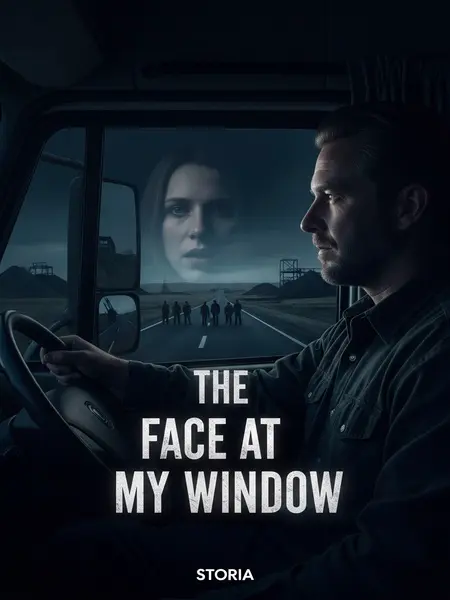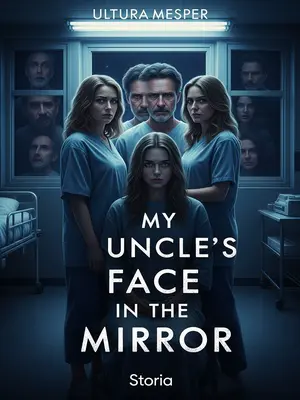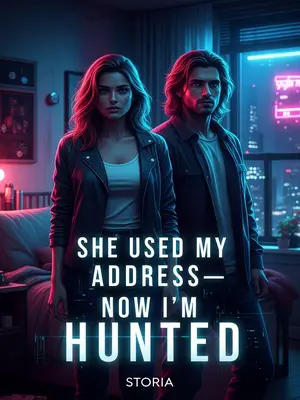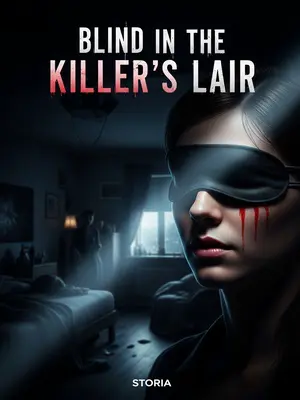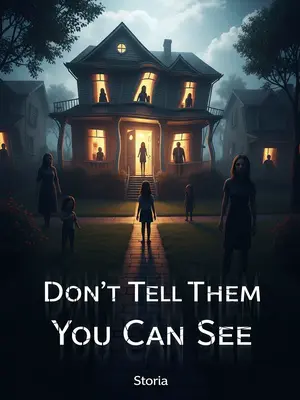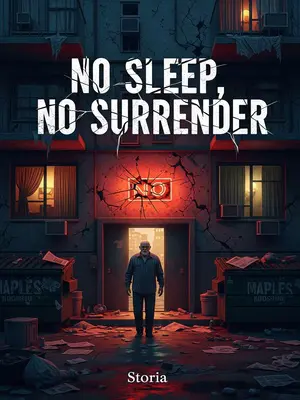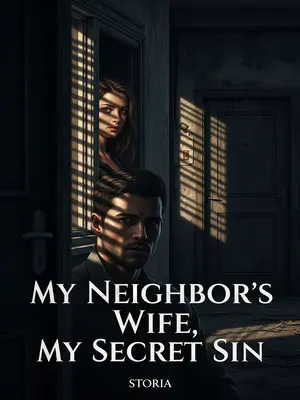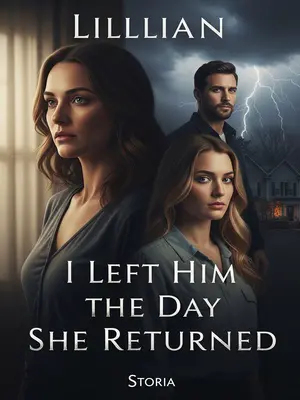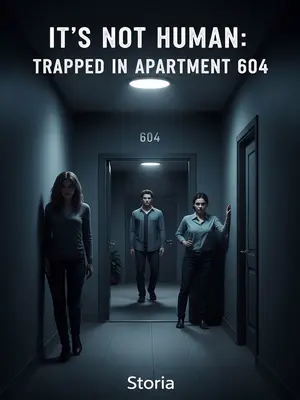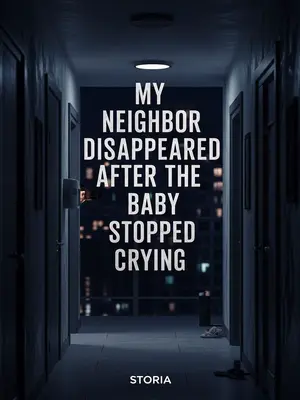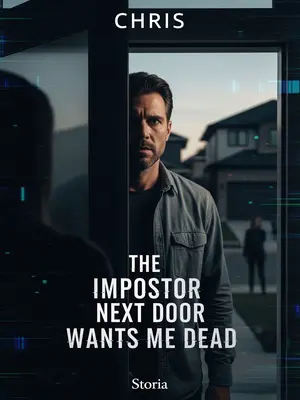Chapter 1: Faces in the Coal and Night
I’d headed up to the northern plains to drive a big rig hauling coal. Never thought I’d end up in a place like this, but there I was—engine humming beneath me, coffee barely kicking in, eyes squinting at a horizon that never seemed to end. Something about that empty stretch of land always got under my skin, like the world was holding its breath.
The air that morning was so sharp it could cut right through you—sky pale and endless, honest to God, the sort of cold that seeps into your bones before the sun’s even up. We were lined up, engines rumbling, waiting to load our trucks. The line of rigs stretched down the dusty lot. Men stamping their feet, blowing into their hands, everyone looking half-awake and itching for the day to start. I remember thinking, damn, coal dust already in the air, gritty between your teeth, and we hadn’t even started moving yet.
Suddenly, someone yelled, “Something’s wrong! S-someone’s trapped under the coal pile! Shit!”
For a second, nobody moved. It was the kind of panic that makes your heart jump before your brain even catches up. Then—boom—a dozen of us bolted over, boots thudding against the frozen ground. Shovels and hands went flying, everybody shouting directions—someone hollering for the supervisor, others just cussing up a storm at the mess. The cold made the coal even heavier; every breath hung in the air like smoke. My fingers went numb, and all I could think was, please, let nobody be under there.
We turned over the entire coal mound. Dug all the way to the bottom. Nothing.
The silence after was thick. I could hear my own breathing. Coal dust on my tongue. Some guys stood there panting, coal dust smeared on their faces; others just shook their heads, glancing around like maybe they’d missed something. The only thing left was the black, churned-up earth and a lot of nervous glances.
The guy who’d shouted looked like he’d seen a ghost.
His face was pale as chalk, eyes wide and darting. He stammered, “No, I swear I saw it! There were these wrinkled human hands pressed under the coal!” His voice cracked. He kept rubbing his hands together like he could scrub away what he’d seen. I caught myself shivering, just watching him.
The shift supervisor called him over and chewed him out in front of everyone, really laying into him, but the guy kept insisting he hadn’t seen wrong.
The supervisor’s voice was sharp, echoing off the metal siding. The guy just kept shaking his head, muttering under his breath. Some of the older hands shot him dirty looks, others just looked worried, like they’d rather not be hearing any of this at all. I caught Old Joe’s eye—he just shrugged, lips pressed tight.
Everyone just drifted off, nothing left to do, and I went to the mine’s restroom with a few of the guys who’d come with me.
Nobody said much as we walked. Boots scraping, everyone lost in their own thoughts... The tension still hanging in the air. I kept my head down, hands jammed in my pockets. The path to the restroom was muddy, and the cold wind whipped around the corner, making us huddle deeper into our jackets. I tried to crack a joke, but nobody laughed.
Place smelled like old pennies and wet boots. This coal mine is old, and so are the facilities.
Everything creaked—pipes rattling in the walls, the roof sagging a little, old signs peeling from the doors. The place smelled of rust, soap, and something damp that never quite went away. You could tell a thousand men had trudged through here over the years. Sometimes I wondered if anything in here had ever been new.
The bathroom light’s dim, the wooden door’s flimsy, and one of the glass windows is busted clean through.
The fluorescent tube flickered overhead, casting weird shadows. The broken window let in a slice of cold air that made the whole room feel like a walk-in freezer. The door swung a little even when nobody touched it, creaking on its hinges with every gust. Eric cursed under his breath about the damn light, squinting as he washed up.
We gathered around the sink outside the stalls, using freezing water to wipe the coal dust from our faces. I grumbled about the water, but nobody seemed to hear me.
The water was so cold it made your knuckles ache. We splashed it on, rubbing at the black streaks, watching them swirl down the rust-stained drain. Nobody talked much—just the sound of water, the occasional sniffle, and Old Joe muttering about how this water could freeze the devil himself.
I don’t know if it was the wind picking up outside, or something rattling somewhere, but all of a sudden the men’s room door started swinging back and forth, creaking nonstop. My heart jumped—I shot a look at the others, and Eric just rolled his eyes.
It was one of those old doors that never really shuts right. The wind would grab it and slam it, then let it drift open again. Every time it moved, it let in a little more cold, and the noise made us all jumpy. Dave grumbled, “Gonna freeze our butts off in here.”
Old Joe, drying his face with a towel, said, “Hope it’s not getting windy. If it does, we’re gonna have a hell of a time getting out of here.” He tried to sound like he was joking, but his eyes darted to the window. I could tell he wasn’t laughing. He tossed his towel over his shoulder and looked out the broken window, squinting at the sky like he could read the wind’s mind.
We run through the badlands out here. On our coal transport route, we have to cross big stretches of American badlands. We’re not scared of much—just the strong winds.
Those winds could push a rig off the road if you weren’t careful. Everyone had a story about a whiteout, or a truck that never made it back. The prairie out there was so flat, you could see trouble coming from miles away, but when the wind picked up, it felt like the world shrank to just your headlights and the road ahead. I remembered once, a buddy of mine got caught in a gust so strong it peeled the tarp right off his load.
Eric hesitated, then said, “No way, I checked the weather. It’s supposed to be clear today.”
Eric squeezed to the front, finished washing first, and was about to leave. As soon as he turned around, he suddenly froze. His hand was still dripping, eyes locked on the window. The room seemed to get colder all at once. Eric’s breath caught in his throat, and he didn’t move a muscle.
“Mike—Mike!”
I heard Eric call me, his voice shaking. I wiped my face and looked where he was staring. My skin prickled, heart pounding. “What is it?” I asked, but he just pointed, mouth working like he couldn’t find the words.
It was the kind of voice that makes your heart skip. I turned, squinting through the fogged-up glass, trying to see what had rattled him so bad. My hands were shaking, but I tried to play it cool.
Right then, I saw, pressed up against the broken window, a pitch-black human face!
For a split second, it was just there—so close I could see the wrinkles and the twisted grin. The skin looked oily, almost shiny, with shadows pooling in the deep lines. My breath froze in my chest. The eyes—if they were eyes—were just dark holes, staring right through us. I felt sick.
It looked human at first, but something was off.
The proportions were wrong, the way it pressed against the glass was unnatural. It looked like a face stretched out of shape, like someone had tried to carve a mask from coal and jam it into the window frame. I wanted to step back, but my feet wouldn’t move.
It was way too big—at least twice the size of a basketball.
You could have fit two grown men’s heads inside that face. It filled the whole pane, black as midnight, the features warped and swollen, nose smashed flat, mouth pulled into a crooked frown. I felt like it was trying to swallow the room.
The face was wrinkled and furrowed, as if all the features were squished together.
It looked like old leather, left out in the sun too long—creases running everywhere, eyes and mouth sunken in deep. The whole thing seemed to pulse for a second, like it was breathing with us. My stomach turned.
The next second, the thing vanished with a whoosh.
A gust of wind rattled the window and it was gone, like it had never been there. The room was suddenly too quiet, everyone holding their breath. Eric’s hand trembled, water still dripping onto the floor.
“What was that?”
Old Joe had only caught a glimpse of something flashing past the window—he hadn’t seen it as clearly as Eric and I did. He squinted, frowning, towel still in his hand. “Just the wind, maybe? Or a bird?” But his voice didn’t sound convinced. The way he looked at me, I could tell he was rattled too. I wiped my hands on my jeans, trying to look normal.
But I couldn’t say for sure what it was, either.
My heart was still pounding, palms sweating despite the cold. I tried to piece together what I’d seen, but the image kept slipping away—like a nightmare fading with the morning light. I wanted to laugh it off, but my throat was dry.
Eric turned to me, face pale. “Mike, could that thing be, be—”
He couldn’t finish. His hands were shaking, and his eyes darted to the door like he was ready to bolt. I could feel the fear rolling off him, raw and real. I swallowed hard.
“Probably just a rag,” I cut him off. “Don’t overthink it.”
I tried to sound casual, like I’d seen worse, but my voice came out too tight. I clapped Eric on the shoulder, maybe a little harder than I meant to. “You let your nerves get the best of you, you’ll see ghosts in every shadow.”
Old Joe saw how scared Eric looked and quickly warned, “Don’t say anything. Didn’t you see how Billy just got chewed out? I’m telling you, stuff like this is bad luck in the mine. People go down every day—there are rules...”
He shot Eric a serious look, lowering his voice. “You talk about things like that, bad luck follows. Old miners say you keep your mouth shut or the mine’ll shut it for you.” The others nodded, and for a second, nobody wanted to meet anyone’s eyes. I felt a shiver run down my back.
Before Old Joe could finish, Dave burst in: “Mike, bad news! Frank and his crew want to cut in line!”
Dave’s boots skidded on the tile as he rushed in, cheeks flushed, out of breath. The tension in the room snapped, everyone’s attention shifting to the new problem. Typical—trouble always comes in bunches. I rolled my eyes. “What now?”
Actually, Old Joe, Eric, Dave, and I aren’t from the same logistics company.
We’re a patchwork crew, thrown together by circumstance more than choice. Some of us had worked together before, some were just faces you got used to seeing on the circuit. Out here, you take the company you can get. Nobody cares much who signs your paycheck, so long as it clears.
I used to run my own trucking company, did this line of work for over ten years.
Back then, I had my own logo on the side of the rigs, my own office—hell, my own little slice of the American dream. I knew every route from the Dakotas to Texas, every diner waitress along the way. Those were good years, or at least they felt that way looking back. Sometimes I miss that old office coffee—burnt, but it was mine.
But later, a partner screwed me over, the company went bankrupt, and I was left deep in debt.
It was a bad deal—paperwork I never should’ve signed, trust I never should’ve given. One day I was a boss, the next I was selling my truck for pennies and dodging calls from the bank. Pride doesn’t pay the bills, though. I learned that the hard way.
These past few years, I’ve been freelancing, taking odd jobs to pay back what I owe.
I’d haul anything—livestock, oil drums, you name it. Sometimes I’d sleep in the cab for days, just to save a few bucks. My kids started to think of me as a ghost, always on the road, never home long enough to leave a mark. Still, I kept rolling—what else could I do?
Dave used to work for me, and he’s a good buddy. His current boss, Ben, is also an old friend of mine.
Dave’s the kind of guy you want watching your back—loyal, steady, never complains. Ben, he’s old-school, the kind of boss who remembers your birthday and sends you home if you look tired. There aren’t many like him left. If Ben calls, you answer.
This time, Ben came to me. He’d landed this coal run up north but couldn’t make it himself and was worried.
He caught me at a truck stop, bought me a cup of bitter coffee, and laid it all out. His hands shook a little, but his eyes were sharp. “Mike, I need someone I can trust,” he said, voice low so the waitress wouldn’t overhear. I knew that tone—he wasn’t just asking, he was counting on me.
He told me, “Mike, this job isn’t just for our company. The mine’s big, but it’s got a reputation. Local trucking companies don’t want it, so they hired several out-of-town teams.”
He slid a worn folder across the table, full of contracts and route maps. “There’s more money, but more headaches too. You know how it is—if the locals are passing it up, there’s a reason.”
“People from all over are coming to fight for the job. I’m worried there’ll be trouble. Help me keep things in check. I’ll provide the truck, cover all the costs, and give you an extra thirty percent. How about it?”
Thirty percent was a lot—enough to make me sit up and listen. Still, I hesitated, thinking of the last time a ‘sure thing’ turned into a mess. But Ben’s eyes were steady, and he put a hand on my shoulder like he knew what I was about to say. I sighed, already feeling the weight of the decision.
I didn’t really want to go. I’ve only got a son, a daughter, and my mother-in-law at home, and going all the way up north is too far.
My wife passed years back, and my mother-in-law stepped in to help. She’s tough as nails, keeps the house running, but I know she worries. The kids—Ryan and Ellie—are growing up fast, and every mile I drive is a mile I’m not there. Sometimes I wonder if they even notice anymore. I missed Ryan’s last baseball game, and Ellie’s dance recital—life just kept moving without me.
But the family needed money, the kids are still in school, and my mother-in-law told me not to worry. So I agreed.
She just looked at me, arms crossed, and said, “We’ll be fine. Go do what you have to do.” She pressed a packed lunch into my hands, and that was that. I kissed the kids goodbye and hit the road before dawn, the house already quiet behind me. I promised I’d call, but I knew I’d probably forget.
When we got to the north, sure enough, several transport teams had come to the mine.
The yard was crowded, license plates from half the states in the Midwest and a few from as far as Texas. Everyone eyeing each other, measuring up the competition. Out here, alliances shift quick—today’s friend is tomorrow’s rival. The tension was thick enough to taste.
Most of them were fine, but Frank’s crew was always stirring up trouble.
You could spot them a mile away—loud, swaggering, the kind of guys who think rules are for other people. They’d laugh too loud, toss beer cans under their trucks, and always seemed to be looking for a fight. I kept my distance.
It takes us two and a half days to deliver a load of coal, stopping overnight at a place called Dry Creek.
Dry Creek’s not on any tourist map. Just a wide spot on the highway, a couple of battered signs, and a gas station that doubles as a diner. The kind of place where the waitress calls you ‘hon’ and the coffee’s always burnt. I’d been through worse.
There are no towns along the way—just empty prairie and badlands on both sides of the road. It’s late autumn, and no one wants to drive at night.
The nights get so dark you feel like you’re driving through the middle of nowhere, headlights carving tunnels in the black. The prairie wind howls, and sometimes you swear you see things moving out there, just past the reach of your lights. I always kept the radio on, even if it was just static.
To load up quickly, we got up an hour earlier to get in line.
The sky was still dark, the air freezing. We shuffled around, clutching thermoses of coffee, trying to keep warm. Everyone wanted to get out ahead of the weather, ahead of Frank’s crew. I could see my breath curling in the headlights.
Just as we were about to load, Frank’s group showed up late and tried to cut in line.
They rolled in, horns blaring, acting like they owned the place. Frank strutted up, waving his arms, barking orders. His guys fanned out, blocking the path with their rigs, smirking like they knew nobody would call them on it. I bit my tongue, waiting for the fireworks.
At the loading point, a few young drivers almost got into a fight with Frank’s men.
Voices got loud, hands started waving. One of Frank’s guys shoved a kid, and for a second it looked like fists would fly. I could see the supervisor watching from the office window, already dialing his phone. I felt my blood start to boil.
Old Joe and Dave rushed over to break it up.
Joe grabbed one kid by the collar, yanking him back, while Dave wedged himself between the two groups, arms out like a referee. “Knock it off, all of you!” he yelled, trying to keep things from boiling over. I backed him up, arms crossed, staring down Frank’s crew.
Frank is bald, big and burly, has about a dozen guys with him, used to work down south, and has a thick accent.
He wore a battered leather jacket, the kind that looked like it had been through a war, and his boots stomped the gravel like he was marking territory. When he spoke, his words rolled out slow and heavy, that southern drawl impossible to miss. He looked me up and down, like he was measuring me for a fight.
When he saw me, Frank’s attitude changed fast—he put on a sincere face. “Mike, these young guys you brought don’t know the rules. We always load first—why are they blocking the road today?”
He tried to sound friendly, but his eyes were hard. He stepped close, lowering his voice so only I could hear. “You know how this works, Mike. Let’s not make a scene.” His breath smelled like stale cigarettes.
“Bullshit!”
Tyler, the youngest in our group, just joined Ben’s company two months ago and isn’t one to back down. “Did you build this road? We’ve been waiting over an hour!”
Tyler’s face was red, fists clenched at his sides. He was the kind of kid who’d fight a bear if you dared him. I could see Frank sizing him up, lips curling into a sneer. I shot Tyler a warning look, but he ignored me.
“Enough!”
I told Tyler to knock it off and turned to Frank. “We’re lining up by the rules. If you’ve got special permission from the mine to load first, get someone from the transport office to tell us, and we’ll let you go. If not, it’s first come, first served.”
I kept my voice calm but made sure everyone could hear. The other drivers nodded, some even stepping forward to back me up. You could feel the tension shift, the crowd waiting to see what Frank would do. I squared my shoulders, not backing down.
Frank’s face darkened when I didn’t back down.
His jaw clenched, and for a second I thought he’d swing. But he just glared, nostrils flaring, like he was weighing his options. I stared right back, not blinking.
One of his guys stuck his neck out and said, “We’re loading first, you jackasses—what are you gonna do about it?”
He was a big guy, tattoos crawling up his neck, grinning like he wanted a fight. The rest of Frank’s crew hooted, egging him on. I felt my fists clench.
“Need your mouth slapped? Or did nobody teach you to brush your teeth?”
I stepped forward, scowling, my shadow looming over Frank. “If you can’t control your men, I don’t mind helping.”
My boots crunched the gravel, and for a moment, the whole yard went quiet. I could feel every eye on us, waiting to see who’d blink first. I could hear my own heartbeat.
Frank was close to me and instinctively stepped back.
He tried to play it off, but I saw the flicker of fear in his eyes. Out here, respect is measured in inches, and I’d just claimed a few more. The silence stretched, and then he finally looked away.
I was born with a strange look—tall and intimidating, bigger than most people.
Six-foot-four, broad shoulders, hands like shovels. People used to joke I could wrestle a bear. Out here, that reputation came in handy. I let my size do the talking when words weren’t enough.
After ten days of northern wind and grit, I looked even more like some demon out of a backwoods church painting.
My skin was rough, beard patchy, eyes bloodshot from too many nights on the road. Even I barely recognized myself in the mirror some mornings. There was something about this place that wore you down, inside and out. Ha.
At that moment, an old, shriveled man behind Frank leaned in and whispered something to him.
The old man’s eyes were sharp, his voice barely more than a hiss. He wore a faded black coat and a battered fedora, the kind you don’t see much anymore. Something about him made my skin crawl. I felt the hair on my arms stand up.
Frank frowned, then looked up, his expression changing, and smiled. “Sorry, Mike. The young ones don’t know any better. You be the bigger man. You go first, we’ll line up behind.”
He flashed a grin, all teeth and no warmth. “No hard feelings, right?” He snapped his fingers at his crew, and they shuffled back, grumbling. The tension broke, but it didn’t feel like a win.
Frank quickly led his people away, and I glanced again at that old man.
He stood apart from the others, watching me with dark, unreadable eyes. His hands were tucked into his sleeves, and he barely moved, like he was waiting for something only he could see. My stomach twisted, and I looked away.
He seemed to be someone Frank respected—a little better dressed than the others. I never saw him do any work, just always tagging along with Frank.
His boots were polished, his coat clean—didn’t fit in with the rest of the roughnecks. Every time I saw him, he had that little black jar tucked under his arm, like it was worth more than gold. I wondered what the hell was in it.
We finally set out smoothly. Our convoy had five trucks, and as soon as we finished loading, we left. Eric and I were in the last truck.
We double-checked the tarps, made sure the radios worked, and rolled out in a line. The sun was just starting to climb, painting the prairie gold. I let Eric take the first shift, feet up on the dash, trying to shake off the morning’s tension. I watched the road unwind in front of us, endless and empty.
As we passed Frank’s truck, I glanced inside.
Frank was still smoking outside, but on his driver’s seat was a small black jar, like some kind of ornament.
It caught the sunlight, gleaming dully. For a second, I thought I saw something moving inside, but maybe it was just the reflection. Either way, it gave me the creeps. I shivered, looking away quick.
It was only about the size of a fist—not sure what it was.
Could’ve been an urn, or some kind of keepsake. Out here, people carry strange things for luck—or for reasons they don’t talk about. I figured it was none of my business.
Once we hit the highway, the view opened up: prairie and wasteland as far as you could see, scenery you don’t get back east.
The land rolled on forever, broken only by the occasional fence post or wandering cow. The sky felt bigger than anywhere else, and the road shimmered in the distance like a river of glass. It was beautiful in a lonely kind of way. Sometimes I’d lose myself just watching the clouds roll by.
But after a while, it just makes you feel empty inside, especially on those endless straight roads.
The hum of the engine, the monotony of the landscape—it wore you down. Sometimes I’d catch myself staring at the horizon, wondering if I’d ever make it home, or if I’d just keep driving forever. Ha. The road has a way of swallowing you up.
Eric and I took turns driving and got to Dry Creek around ten at night.
The gas station lights glowed yellow in the dusk, a beacon in the emptiness. We parked the trucks in a neat line, engines ticking as they cooled. The air smelled of diesel, sagebrush, and distant rain. My stomach growled, but I was too tired to care.
It gets dark late here, and there’s a time difference with the east, so it wasn’t fully dark yet at that hour.
The sky was streaked with purple and orange, the last rays of sun clinging to the horizon. You could hear crickets starting up, the wind sighing through the grass. I pulled my jacket tighter, feeling the cold settle in.
Dry Creek isn’t much of a rest stop—just a few two-story stone buildings, and some ranchers selling food and drinks.
The diner had a faded sign, the motel’s neon buzzing. A couple of old-timers sat on the porch, chewing tobacco and watching us with mild curiosity. The only thing fresher than the coffee was the gossip. I ordered a burger, but the fries tasted like cardboard.
There aren’t many private cars here—mostly truckers stopping for the night.
Everyone knew the routine: eat, shower if you could, and try to grab a few hours’ sleep before the next leg. The parking lot was a forest of chrome bumpers and mud-splattered tires. I wondered how many stories had started and ended in places like this.
Not long after we arrived, Frank’s crew showed up too.
They pulled in with a roar, radios blaring country music. Frank hopped out first, swaggering like he owned the place. The old man followed, moving slow, jar clutched tight to his chest. I watched them out of the corner of my eye.
Frank brought that old man along, smiled when he saw me, but shot a nasty look at Tyler.
He gave me a big, fake grin, but when he caught sight of Tyler, his eyes narrowed. Tyler didn’t flinch—just stared back, burger in hand, daring him to say something. I braced myself, just in case.
Tyler is a bit of a hothead too—he stood in the way with his burger, only moving when I called him over.
I had to snap at him twice before he budged. “Don’t start something you can’t finish,” I muttered as he passed me. Tyler just shrugged, mouth full, but I could tell he was itching for a fight. Kids.
Frank glared at him and walked off.
He muttered something under his breath, stomping away. The old man trailed behind, eyes never leaving our group. I watched them go, the tension in my shoulders not easing one bit.
That night, we left a few people on the trucks to watch the coal, and the rest of us stayed in the stone houses.
The rooms were drafty, beds lumpy, but it beat sleeping in the cab. We took turns standing guard—nobody wanted to lose a load to thieves, or worse. I tried to get comfortable, but the mattress had a spring poking me in the back.
I shared a room with Old Joe. In the middle of the night, I suddenly woke up.
I wasn’t sure what had roused me—the wind, a bad dream, or just the kind of sixth sense you get after years on the road. The room was cold, moonlight spilling across the floor, painting everything silver. I shivered, sitting up.
I don’t know what time it was—the moon outside was huge. I didn’t have my phone, so I used the moonlight to go to the bathroom.
The clock on the wall was dead, battery long gone. I fumbled for my boots, shivering as I padded down the hall. The whole building creaked and settled, like it was breathing in its sleep. My breath clouded in the air.
Just as I pushed open the bathroom door, someone suddenly called out behind me: “Mike!”
The voice was sharp, urgent. I spun around so fast I nearly tripped, heart hammering in my chest. The hallway behind me was empty, shadows stretching long and thin. I stared, waiting for something to move.
I spun around, but there was nothing behind me.
Just the silence, thick as syrup. Old Joe’s snores drifted from the room, steady and deep. I stood there a minute, listening, waiting for something else to break the stillness. My skin crawled.
Old Joe was still lying on the bed, breathing steadily, sound asleep.
I could see his outline through the cracked door, one arm flung over his eyes, blanket pulled up to his chin. If he’d heard anything, he didn’t show it. I rubbed my arms, goosebumps rising.
Everything was silent. Maybe I imagined it?
I rubbed my eyes, trying to shake off the chill crawling up my spine. Maybe it was just the wind, or a dream I hadn’t fully woken from. I told myself to stop being jumpy.
Thinking that, I turned and went into the bathroom, but before I could close the door, I heard it again: “Mike—”
This time, the voice was right next to my ear, soft but clear as day. I froze, breath caught in my throat, the door half-shut behind me. My hands clenched the doorframe.
The voice was clear, right next to my ear.
It sent a jolt through me, cold sweat prickling on my neck. I knew that voice—it was familiar, but wrong somehow. My heart hammered.
This time I recognized it—it was Dave’s voice!
But Dave was supposed to be sleeping in a room on the first floor. How could he suddenly call me? My mind raced, trying to make sense of it.
Something felt off, so I quickly grabbed my old braided bullwhip and went out.
The whip was given to me by a traveling preacher when I was a kid.
He was a strange old man, passing through town in a beat-up Chevy. I found him stuck in a ditch during a thunderstorm and helped him out. He pressed the whip into my hands, saying it had protected him from more than just snakes. “You got the look of a haunted soul, but a good heart—you’re meant to walk the line between the living and the dead.” I never forgot his words.
In recent years, to earn money and pay off my debts, I’ve taken on a lot of odd jobs, and this whip has come in handy more than once.
It’s saved my hide from wild dogs, angry drunks, and more than one stubborn steer. I kept it coiled under my bedroll, just in case. Tonight, I was glad to have it.
I went down to the first floor and knocked on Dave’s door.
The hallway was dark, only a sliver of moonlight leaking under the door. I knocked hard, listening for any sound inside. My fingers tapped out a nervous rhythm.
After a while, a sleepy Tyler opened up.
His hair was sticking up, eyes half-shut. He blinked at me, confused. “Mike? What’s up?”
“Where’s Dave?” I asked.
